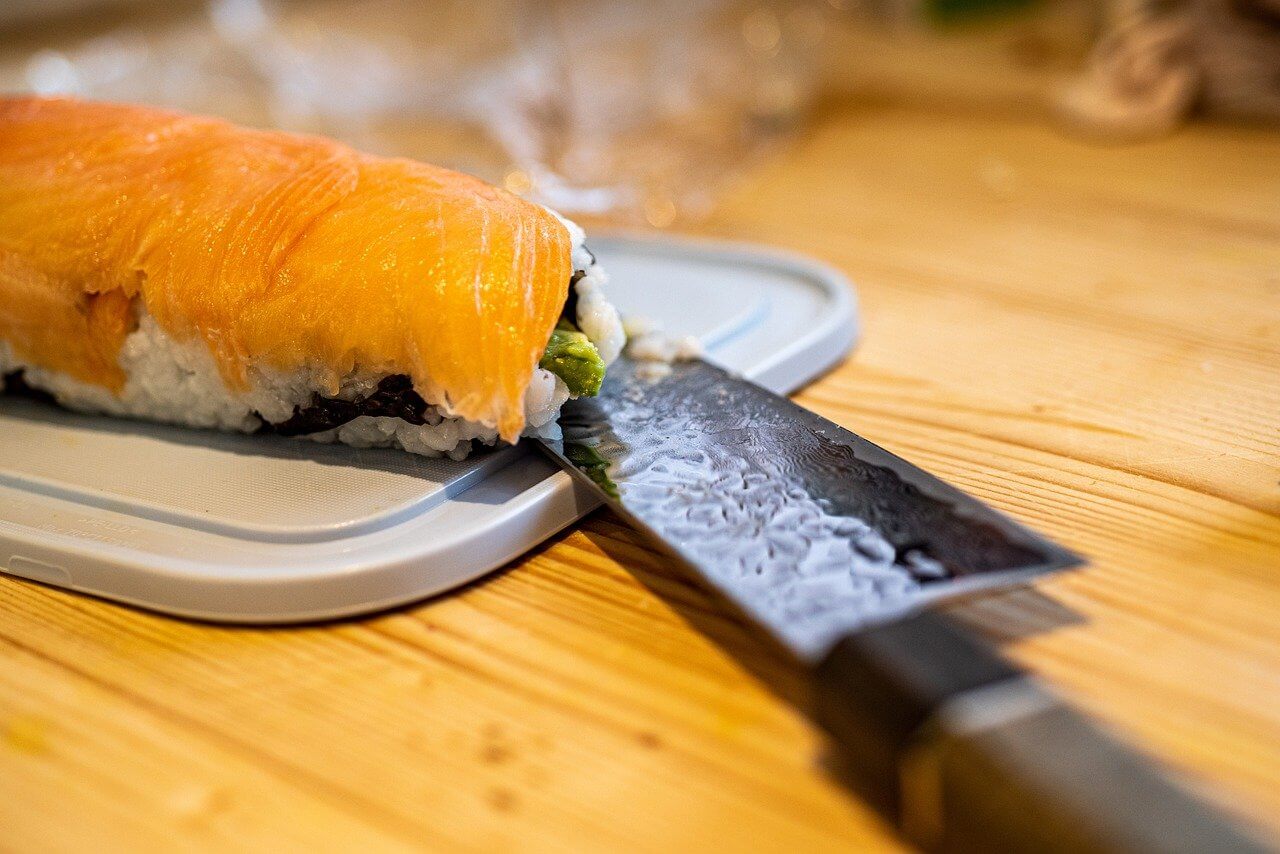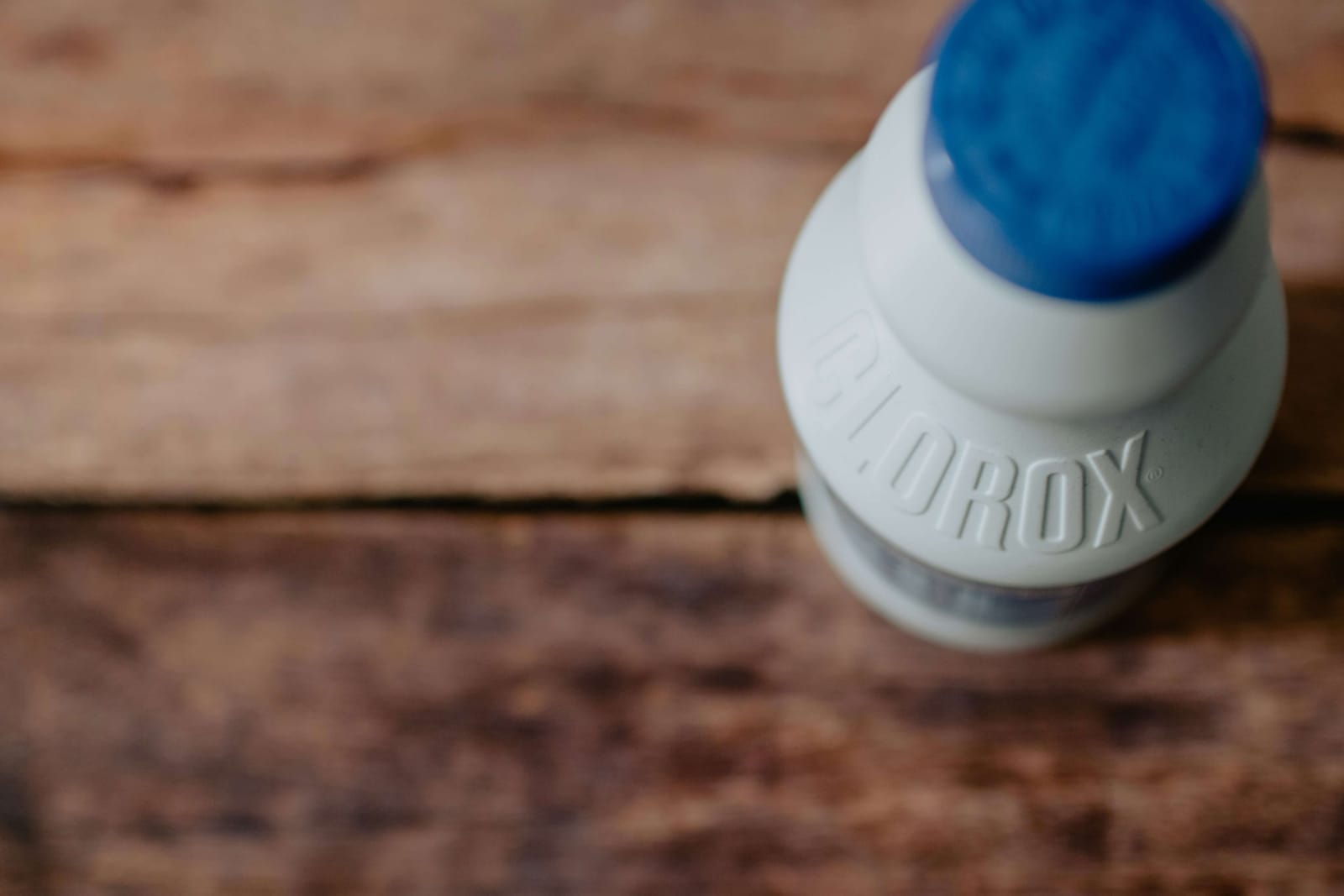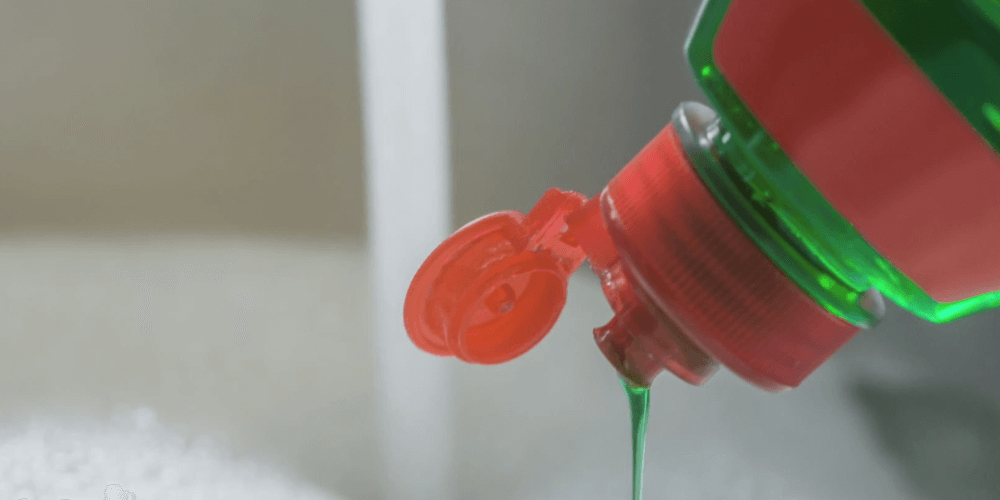With its sharp edge and precise cut, a sushi knife is a prized possession in any kitchen. However, maintaining your sushi knife for longevity requires more than just occasional use. It involves regular care and attention to keep the blade sharp and the handle in good condition.
This micro-post will guide you through the process of knife care, ensuring your sushi knife lasts for years to come.
Jump To:
- Importance of Knife Care
- Basic Knife Care Tips
- How to Clean Your Sushi Knife
- How to Sharpen Your Sushi Knife
- How to Store Your Sushi Knife
- Common Mistakes in Knife Care
- Conclusion
- Frequently Asked Questions
- Further Reading
Importance of Knife Care
Knife care is crucial for maintaining the functionality and longevity of your sushi knife. A well-maintained knife ensures efficient cutting and prevents accidents caused by dull blades.
Moreover, proper knife care can enhance the taste of your sushi, as a sharp knife makes cleaner cuts, preserving the texture and integrity of the ingredients.
Basic Knife Care Tips
Maintaining your sushi knife is effortless when you follow the right steps. Here are some basic knife care tips to ensure your knife lasts longer and stays sharp.
Regular Sharpening and Honing
The edge of your knife can become dull over time. Regular sharpening and honing are essential to keep your knife in the best condition. Sharpening removes material from the blade to create a new edge while honing realigns the edge of the blade without removing material. It's an obvious solution to keep your knife sharp and ready for cutting.
Proper Washing and Drying
After using your knife, it's best to wash it immediately by hand. Dishwashers can be harsh on knives, leading to dull blades and potential damage. After washing, dry your knife completely with a cloth to prevent water spots and rusting.
Correct Storage
Store your knife in a dry place away from other utensils to prevent it from getting scratched or damaged. A wooden magnetic knife holder or a knife block is a great option for storing your knives. Consider using a knife sheath for protection if you're storing it in a drawer.
Use the Right Cutting Board
The surface you cut on can significantly impact your knife's longevity. Hard surfaces like glass or granite can dull your knife quickly. Instead, opt for a wooden or plastic cutting board to keep your knife's edge sharp for longer.
Avoid Damaging Activities
Your sushi knife is a precision tool, not a multi-purpose kitchen gadget. Avoid using it for tasks like opening cans or cutting through bones, as these can damage the blade and make it dull faster.
By following these basic knife care tips, you can ensure your sushi knife remains sharp and effective for years to come.
How to Clean Your Sushi Knife
Keeping your sushi knife clean is crucial to prevent food contamination and maintain its performance. Here's how to do it:
Immediate Cleaning
Clean your knife immediately after use. This prevents food particles from drying on the blade, which can cause damage.
Hand Wash
Use warm water and mild soap to clean your knife. Avoid using harsh detergents or abrasive scrubbers that can damage the blade.
Dry Immediately
After washing, dry your knife immediately with a soft cloth to prevent water spots and rusting.
How to Sharpen Your Sushi Knife
A sharp knife is safer and more efficient to use. Here's how to keep your sushi knife sharp:
Regular Honing
Honing doesn't sharpen the knife but realigns the edge of the blade to maintain its sharpness. Use a honing rod before each use or after several uses.
Periodic Sharpening
It will need to be sharpened depending on how often you use your knife. You can use a whetstone, a knife sharpener, or have it professionally sharpened.
How to Store Your Sushi Knife
Proper storage of your sushi knife is crucial to maintain its sharpness and prevent damage. Here are some tips:
Knife Block or Magnetic Strip
These are the most common storage methods. They keep the knives separate, preventing the blades from touching and causing damage.
Knife Sheath or Blade Guard
If you don't have a knife block or magnetic strip, consider using a knife sheath or blade guard. These cover the blade, protecting it from damage.
Avoid Loose Storage
Never store your knives loosely in a drawer or container where they can move around and damage each other.
Common Mistakes in Knife Care
Many people unknowingly make mistakes when caring for their knives. Here are some common errors and how to avoid them:
Using the Dishwasher
While it may seem convenient, using a dishwasher to clean your knives can cause significant damage. The heat and harsh detergents can degrade the knife's handle and dull the blade. Always hand wash your knives with mild soap and warm water.
Incorrect Storage
Storing knives in a drawer with other utensils can lead to scratches and dulling of the blade. Instead, use a knife block, magnetic strip, or individual blade guards to protect your knives.
Cutting on Hard Surfaces
Avoid cutting on hard surfaces like glass or stone countertops. These materials can dull your knife quickly. Instead, it's best to use a wooden or plastic cutting board.
Conclusion
Maintaining your sushi knife for longevity involves regular cleaning, sharpening, and proper storage.
By avoiding common mistakes and following the tips provided in this micro-post, you can ensure your sushi knife remains in top condition for years to come.
For more detailed information on caring for your Japanese knife, you may find this guide from Knifewear extremely helpful.
If you're looking for a new sushi knife or perhaps buying your first one, check out our article on the best sushi knives for our top 5 recommendations.
Frequently Asked Questions
How do you take care of a sushi knife?
Regularly clean, sharpen, and store your sushi knife properly. Avoid using it for tasks it's not designed for, such as opening cans or cutting through bones. Also, avoid washing it in the dishwasher and instead hand wash it with mild soap and warm water.
How do you take care of a Japanese knife?
Similar to a sushi knife, a Japanese knife requires regular cleaning, sharpening, and proper storage. It's also important to use it only for its intended purpose and avoid damaging activities.
How do you oil a Japanese knife?
After cleaning and drying your knife, apply a small amount of oil to the blade. Use a cloth to spread the oil evenly across the blade. This helps prevent rust and keeps the blade in good condition.
How should you care for your knife to ensure it lasts as long as possible?
Regular cleaning, sharpening, and proper storage are key to maintaining your knife. Also, using it only for its intended purpose and avoiding damaging activities can help ensure its longevity.
Further Reading
- The Art of the Sushi Knife: A Micro-Guide: This comprehensive guide delves into the world of sushi knives, their history, types, and how to choose one.
- Japanese Sushi Knives: Excellence in Tradition: Explore the unique aspects of Japanese sushi knives, their types, and their role in creating perfect sushi.
- HOW TO CARE FOR YOUR BRAND NEW JAPANESE KNIFE (OR ANY OTHER KNIFE) by Knifewear: This article provides practical tips on how to care for your new Japanese knife, including cleaning, sharpening, and storage advice.



